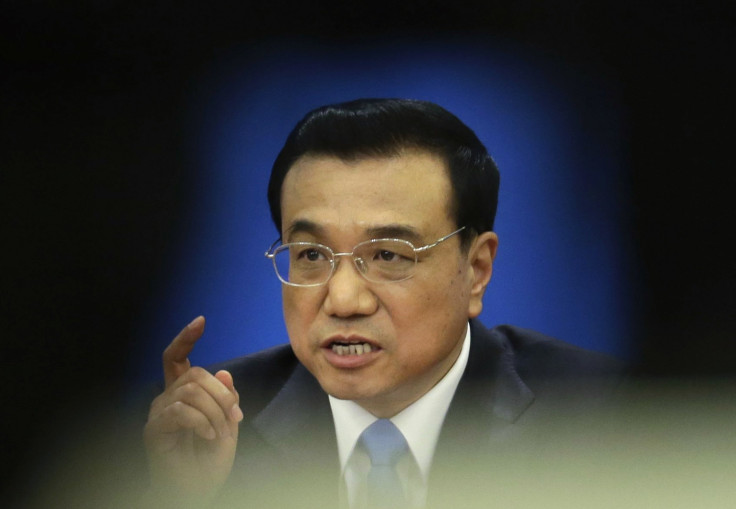China Will Struggle To Meet Reduced Growth Target: Premier Li Keqiang

China will struggle to meet its 2015 economic growth target of 7 percent, Premier Li Keqiang told a news conference Sunday, adding that policy makers “recognize that there is considerable downward pressure on China’s growth.”
Li told reporters that the government was” prepared to step up efforts” to support the economy if a slowdown hits employment, adding that China has “more tools in the toolbox” if that were to happen, the Wall Street Journal reported.
“It will by no means easy to meet this [7 percent] target," he told reporters. “The pain is still there and the pain is becoming even more intense,” he said, adding “However painful it is, the wrist-cutting efforts will be carried out continuously until the job is done,” according to the South China Morning Post.
The country's economy grew by 7.4 percent last year, its worst performance in decades. President Xi Jinping dubbed the slowdown a “new normal” for the country, and signaled that the government wishes to guide the economy towards a lower, but more sustainable level of growth.
Li's comments came at as the annual meeting of the National People's Congress, China's primary legislature, drew to a close.
In a sign that the government intends to rely less on heavy industry as an economic driver, Li said that the government was “determined” to tackle the country's high-levels of air pollution. He added that the government aimed to ensure that a new environmental protection law, which came into force Jan. 1, would be fully implemented this year, according to China's CCTV News.
China's economy faced weak domestic demand, and a slowdown in the property market in 2014. Property had been a key driver of the phenomenal growth the country had experienced in recent years.
It has also had to contend with high levels of debt, particularly among local governments, who had derived a great deal of revenue from property sales in the past. Figures released in January showed that local governments in China were $3 trillion in debt, which caused concern for investors.
Li however, said that over 70 percent of local government debts are in the form of investments which have good prospect of yielding returns, CCTV reported.
Li also touched on the issue of China's thorny relationship with neighboring Japan. He said that there was “difficulty” in the relationship between the two countries, and that the crux of the problem was how Japanese leaders viewed the history of World War II.
Japan's treatment of China during the war -- during which time they occupied large parts of the country and committed widespread abuses -- still inspires passionate anger among many Chinese, who feel that Japan has not accepted the extent of the crimes committed during the period.
Li added that if Japanese leaders could “face history squarely” that there would be an opportunity for growth in relations between the two countries.
© Copyright IBTimes 2025. All rights reserved.






















